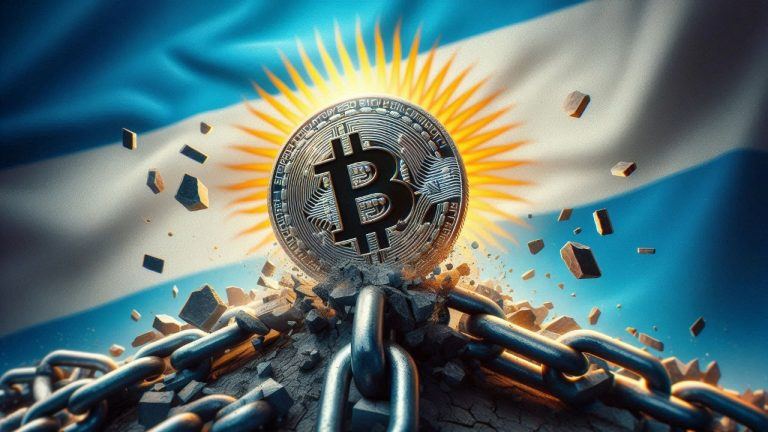Here is a list of crypto terms that I think would be useful to know . Feel free to add any in the comments if you think I missed something
Cryptography
The act of creating or solving codes. Cryptography is used to keep cryptocurrency secure.
ATH
ATH means All Time High. This is the highest price a cryptocurrency has ever achieved
Fiat currencies
Government-issued currencies that are not backed by anything physical. Most currencies today are fiat currencies.
FOMO
"Fear Of Missing Out". This often occurs when a cryptocurrency increases in value so quickly that people are afraid that they will miss the boat to riches, causing the price per coin to be even higher.
FUD
"Fear, Uncertainty, Doubt". This crypto term is often used to describe the volatility of the crypto market
Dollar-cost averaging (DCA)
It is a strategy where an investor invests a total sum of money in small increments over time instead of all at once. The goal is to take advantage of market downturns without risking too much capital at any given time.
DYOR
Means do your own research
Shill
Promoting a project independent of the project’s actual merits often because the person will directly benefit from the project’s success.
Bear market
A bear swipes down with its claws. That is why a market where the trend is in a downward movement is called a bear market. Sentiment is then negative and prices predominantly fall.
Bull market
A bull thrusts its horns up in the air. That is why a Bull Market is a market where the trend is in an upward movement. Prices are rising and sentiment is positive.
Bearish
A tendency of prices to fall; a pessimistic expectation that the value of a coin is going to drop.
Bullish
A tendency of prices to rise; an optimistic expectation that a specific cryptocurrency will do well and its value is going to increase.
Buy the Dip
This term is used when the price of a cryptocurrency or the market is in a dip. People are inclined to leave because they are afraid of losing. But a dip offers opportunities to buy a coin or token cheaply before it starts to rise again.
Blockchain
One of the most used cryptocurrency terms, blockchain is the underlying technology of cryptocurrency that keeps the system secure.
Block
Blocks make up a blockchain. Within each block are a series of transactions.
NFT
An NFT is a Non-fungible Token. They are unique and cannot be exchanged. They live on the blockchain.
Decentralized
In cryptocurrency, decentralised means that there is no central point of the network. Instead, it is spread over a series of users (nodes).
Centralized
The opposite of decentralised, centralised means that there is a central point.
This is often disliked in cryptocurrency as it may mean that the central point holds a lot of power and can also mean it is more vulnerable to attack.
Hard fork
Essentially a hard fork is a radical update to the blockchain that can make previously unvalidated blocks valid or the reverse.
A hard fork can result in a new cryptocurrency being created. One well-known example would be Bitcoin and Bitcoin Cash.
Soft fork
A backwards-compatible change in the blockchain protocol. They are less extreme than hard forks.
Proof of Work (PoW)
One of the most common algorithms in cryptocurrency. It requires miners to mine blocks to validate transactions.
Proof of Stake (PoS)
Another highly common algorithm that requires users to stake some of their cryptocurrency to validate transactions.
Some believe that this algorithm is much more efficient than Proof of Work.
Delegated proof of stake (DPoS)
A variation of Proof of Stake that uses supernodes or masternodes to validate transactions.
Smart contracts
Smart contracts are essentially digitalised contracts that are executed on the blockchain between different parties.
dApps
Stands for ‘decentralised application’, these are applications that are not centralised and work on top of the blockchain.
Mining
The process of validating a block in return for the block reward.
Mining rig
A mining rig is a structure that houses cryptocurrency mining equipment.
Yield Farming
Yield farming, this is also known as liquidity mining. This allows you to generate a way for rewards with cryptocurrency holdings. In simple terms, this means locking cryptocurrencies and receiving rewards. This happens on DeFi projects.
Staking
Staking is the process of actively participating in transaction validation (similar to mining) on a proof-of-stake (PoS) blockchain. On these blockchains, anyone with a minimum-required balance of a specific cryptocurrency can validate transactions and earn Staking rewards.
Leverage
Trading with borrowed capital (margin) in order to increase the potential return of an investment.
Liquidity
The availability of an asset to be bought and sold easily, without affecting its market
price.
Wallet
One of the most common cryptocurrency terms, a virtual wallet where people store their cryptocurrency to keep it safe.
Address
An identifier typically made up of alphanumeric characters that signify where cryptocurrency will be sent.
Airdrop
This is a kind of giveaway for founders who determine a particular cryptocurrency, giving those coins or coins away. The promotion is for a short period. This is done to publicize the tokens and distribute the tokens.
Altseason
This is the term given when money flows to altcoins faster than Bitcoin. In other words, when investors buy more altcoins than Bitcoin.
Arbitrage
Buying and selling the same asset on two exchanges to take advantage of small price differences.
Public keys
This is the key that you share with people so you can receive cryptocurrency.
Private keys
This is what you use to access your wallet where you store your cryptocurrency.
Only you should have access to your private keys. If someone else gets hold of them, they can steal your cryptocurrency.
Cold storage
This is when people store their private keys offline away from the Internet, so they won’t get stolen.
Paper wallet
A form of cold storage, a paper wallet is your public and private keys printed out usually on to paper.
Hardware wallet
A wallet that usually takes the form of a small physical device. Hardware wallets are perhaps the safest way to store your cryptocurrency.
Distributed ledger
This is where all transactions are published and can be viewed by anyone. This makes using cryptocurrency to perform malicious transactions harder.
Immutable
This is a word that is often used to describe the distributed ledger. It means that it cannot be changed. Once information or a transaction is added, you cannot remove it.
Fungible (or fungibility)
This refers to if something can be interchanged with another. In cryptocurrency, if a coin is fungible it should have the same value everywhere.
Altcoin
This cryptocurrency term is short for ‘alternative coin’, this is any cryptocurrency that is not Bitcoin.
White paper
A white paper is a document that outlines what a cryptocurrency is created to do and how it will achieve it.
The first white paper was released by Satoshi Nakamoto for Bitcoin. Since then, almost every cryptocurrency has released one.
ICO
Stands for ‘Initial Coin Offering’, which is where a new cryptocurrency will give away some coins at a discounted rate in return for another cryptocurrency, such as Bitcoin.
This is usually done to finance the project.
IEO
Stands for ‘Initial Exchange Offering’ is a fundraising event for a cryptocurrency exchange, where users purchase coins that can be used on an exchange.
Token
A token is the underlying digital asset of the cryptocurrency that can be used to make transactions or pay for other functions. Tokens can also be called ‘coins’.
ERC20 token
An ERC20 token is in some ways comparable to Bitcoin, Litecoin and any other cryptocurrency; these tokens are assets based on blockchain technology. They have value and you can send and receive them. ERC20 tokens are only issued on the Ethereum network.
Satoshi
A Satoshi is the smallest denomination of Bitcoin and is equivalent to 100th billionth of one Bitcoin. It was named after Bitcoin’s creator, Satoshi Nakamoto.
Exchange
An exchange is where people can go to buy, sell or trade cryptocurrency. Such as Binance, Kraken , Coinbase etc.
Hash
The function of decrypting information. In cryptocurrency, miners must decrypt hashes to mine blocks.
The more hashing power you have, the more blocks you can mine and the more block rewards you can receive.
Transactions per second
Often abbreviated to ‘tps’, this cryptocurrency term means how many transactions a cryptocurrency can handle per second.
Market capitalisation
A common cryptocurrency term that means how much a cryptocurrency is worth in total.
Double-spends
Quite simply, this is when someone can spend their cryptocurrency twice. In most cases, this is impossible unless someone performs a 51% attack.
51% attack
A theoretical attack where if an entity gains 51% of the hashing power, they can perform double-spends and other malicious activities.
Ultimately, such an attack would likely cause the end of a cryptocurrency.
Consensus
In cryptocurrency, a consensus is where there is an agreement on the blockchain as to what has taken place, for example, transactions.
If there is no consensus, this can be bad and can mean an attack has taken place or the blockchain is vulnerable to attack.
Stablecoin
A cryptocurrency that is supposedly tied to the value of something else, such as the US dollar, to make it more stable and less volatile in price swings.
Shitcoin
Coin with little potential or future prospects.
Privacy coin
A cryptocurrency where transactions can be made private. Some of the most well-known privacy coins include Monero, Dash and Zcash.
Utility coin
A cryptocurrency that’s can be used for other purposes aside from transactions.
For example, Binance Coin can be used on the Binance exchange to get a discount when purchasing other coins.
Block reward
The number of tokens a miner receives for mining a block. The reward can be increased to raise the likeliness of miners validating the transactions faster.
Pump and dump
This is a scam where people - usually the creators who own a large share - encourage others to buy their cryptocurrency to artificially pump the price.
Once the price reaches a high point they are happy with, the scammers sell off all that they own and the price plummets.
Bagholder
This cryptocurrency term is for someone left with a cryptocurrency after a pump and dump.
DAG
Stands for ‘Directed Acyclic Graph’, some cryptocurrencies use this algorithm instead of blockchain technology, such as IOTA.
Byzantine Fault Tolerance
In short, Byzantine Fault Tolerance is where a blockchain can keep functioning if some of its participants (nodes) fail or are attacked.
Node
A computer that works on the blockchain network and helps it stay decentralised.
Supernode
Usually, supernodes work on DPoS blockchains and are responsible for validating transactions. They may also be called ‘masternodes’.
Validator
Another word for someone who may validate transactions.
Solidity
A coding language invented by Ethereum for coding smart contracts. It is quite similar to JavaScript and is also used by Tron.
Smart Contract
A two-way smart contract is an immutable agreement that is recorded on the blockchain, containing specific logical actions that are comparable to a "normal" contract. Once this contract has been signed, it can never be changed again. A smart contract can be used to set certain benchmarks that must be met in exchange for money.
Gas
A fee for validating a transaction. This cryptocurrency term is mostly used for Ethereum.
On-chain governance
This deals with how the blockchain handles changes. Typically, people can vote new changes into the blockchain to update it to overcome issues.
DAO
Stands for ‘Decentralised Autonomous Organisation’, this is an organisation, usually made up of developers and shareholders who vote on how the blockchain should develop.
Moon
If a cryptocurrency is ‘going to the moon’, it means that people believe it will rise exponentially in price.
HODL
A drunken misspelling of the word ‘hold’. Now people use it when they say they are going to wait and hold a cryptocurrency.
Whale (or crypto whale)
A whale is an entity that can move large amounts of cryptocurrency in one go. When they do this, it can have a big impact on the market.
Goxxed
When someone leaves their cryptocurrency in an exchange and they get hacked and lose it all.
Peer to peer
A connection between two or more computers. In the case of cryptocurrency, this would be nodes.
What makes peer to peer so unique to cryptocurrency and blockchain is that there is no middleman between transactions
[link] [comments]

You can get bonuses upto $100 FREE BONUS when you:
💰 Install these recommended apps:
💲 SocialGood - 100% Crypto Back on Everyday Shopping
💲 xPortal - The DeFi For The Next Billion
💲 CryptoTab Browser - Lightweight, fast, and ready to mine!
💰 Register on these recommended exchanges:
🟡 Binance🟡 Bitfinex🟡 Bitmart🟡 Bittrex🟡 Bitget
🟡 CoinEx🟡 Crypto.com🟡 Gate.io🟡 Huobi🟡 Kucoin.















Comments